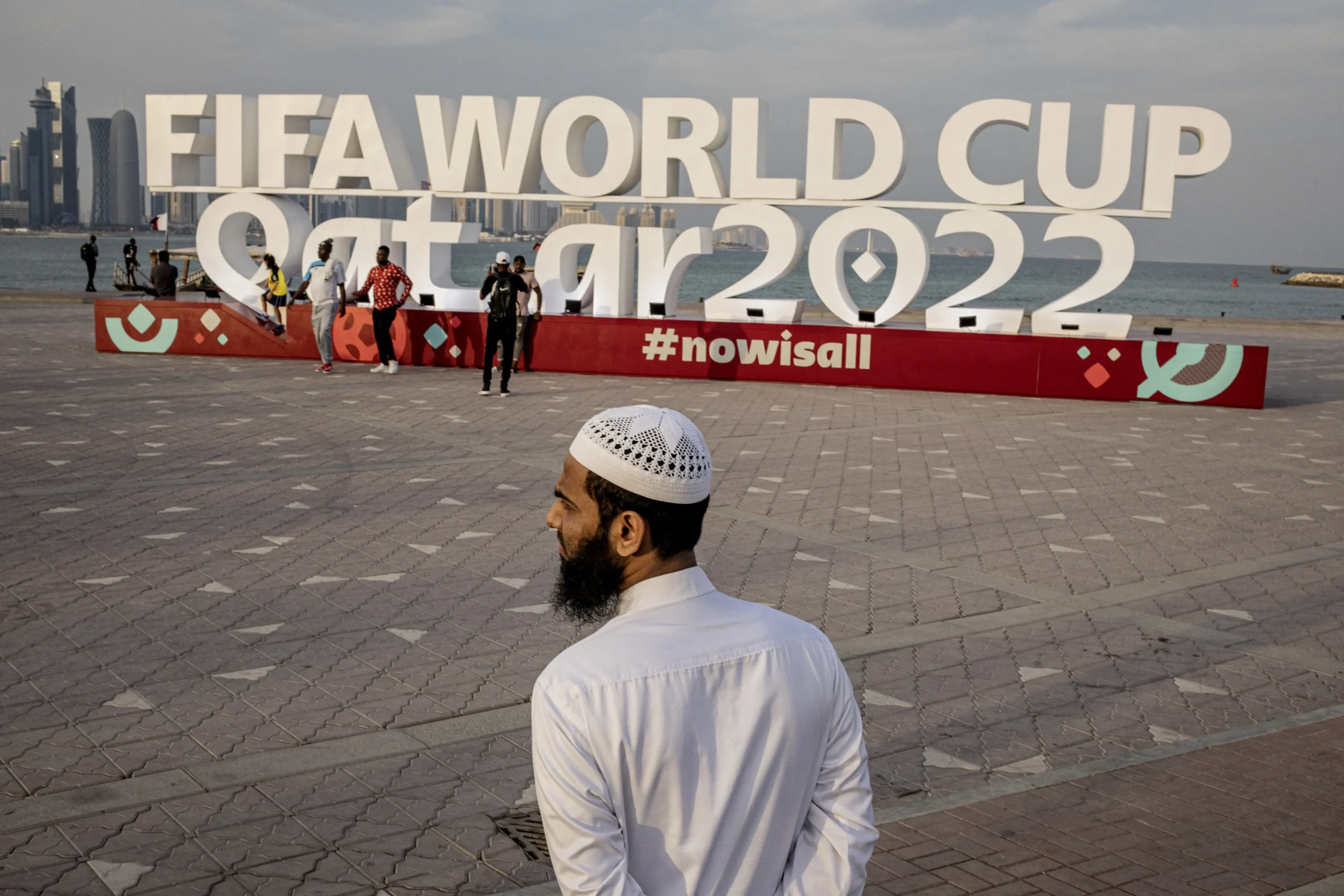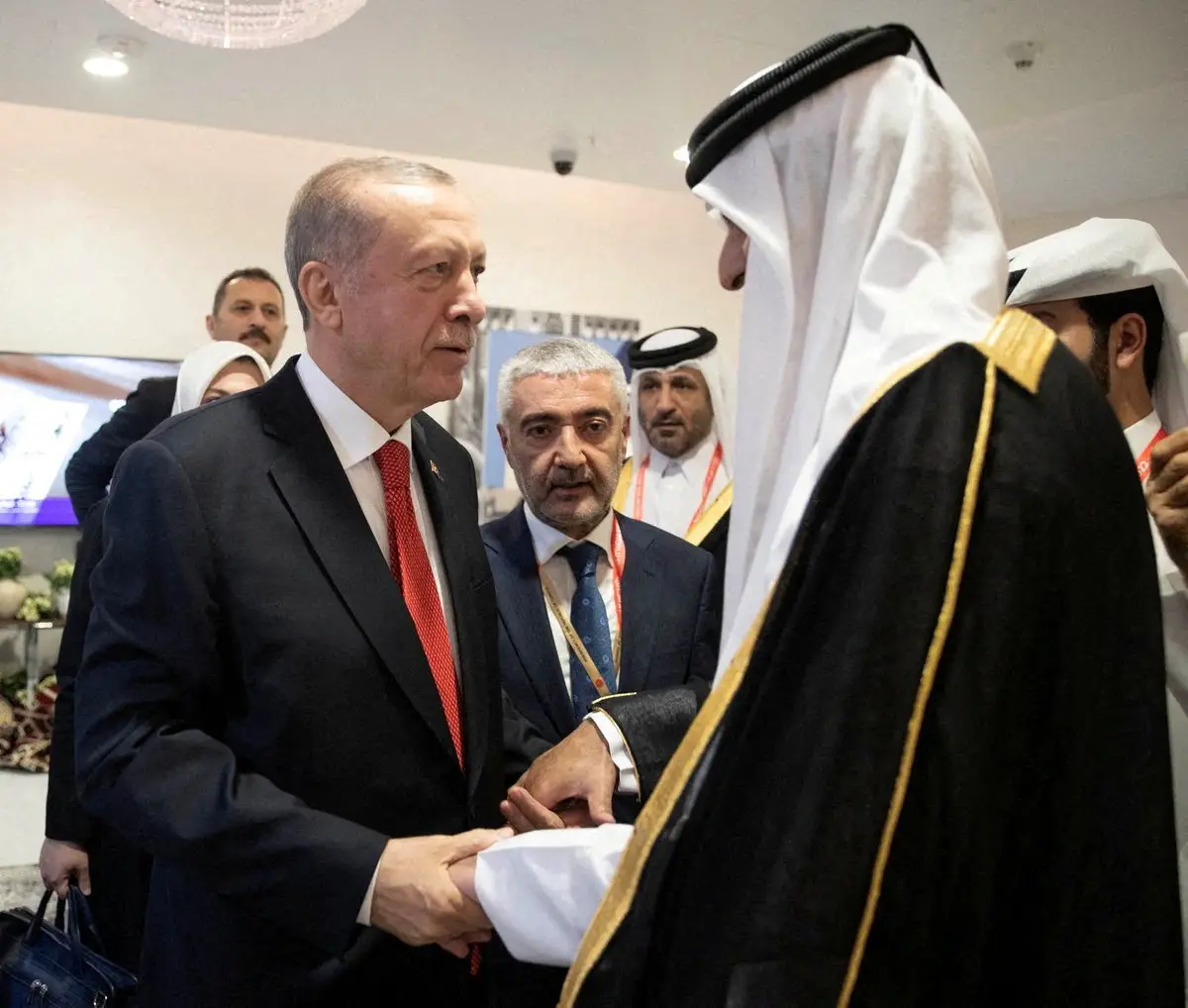The news of “a tentative agreement” for the release of some Hamas hostages in lieu of a humanitarian pause has again turned the spotlight on Qatar’s mediating role.
Both Hamas and US officials have already stated that they are very close to a deal. Indeed, if Qatar manages to secure the safe release of about a quarter of the hostages, it will have won Qatar an unparalleled prestige as a humanitarian middle power.
The Hamas-Israel war has so far served to consolidate Qatar’s world-renowned position as a whisperer of regional “rogue actors”. Already having gained recognition for hosting the US-Taliban negotiations and mediating the release of US hostages from Iranian prisons, Qatar needs to underscore that it is not an enabler of “rogue actors” but indeed is their co-opter.


Amidst the secret Qatari-US mediated negotiations for the release of hostages, Saudi Arabia is heading an Arab-Islamic Conference delegation to Beijing to woo Chinese support for a ceasefire in the region. Over the years, Saudi Arabia and Qatar have faced criticism from various quarters. Critics of both nations focus on their perceived hegemonic aspirations, alleged support for radical ideologies, including armed groups, and their roles as strategic players in the global energy landscape. However, despite the criticisms, both Saudi Arabia and Qatar have undergone a transformation, evolving from regional rivals to contenders for global middle power status.
In the early 2000s, there was scrutiny of Saudi Arabia for not taking decisive action against Saudi citizens who sponsored armed radical elements and terrorists, thus enabling Al-Qaeda. Others took to task Saudi Arabia’s intervention in the Yemeni civil war (2013-today) whilst discounting the role of Iran’s Shia Imperium. Nonetheless, Saudi Arabia has a solid track record as a conservative, “sober” and “non revolutionary”, foreign policy vis-à-vis the Arab Israeli conflict and the Arab-Western relations. In fact, those who criticize Qatar for enabling “rogue” actors often employ a similar approach to those who criticized Saudi Arabia in the aftermath of 9/11.
Qatar’s quest to attain middle power status has many similarities to that of Saudi Arabia’s. The ever-evolving contours of Qatar’s national security doctrine bear an uncanny resemblance to those that marked Saudi Arabia’s rise from an aspiring regional power in the 1970s to today’s global energy powerhouse. Such an approach suggests viewing both Saudi Arabia and Qatar, in the era of Young Arab Powerful Monarchs—Saudi Crown Prince Mohammed Bin Salman (MBS) and Qatari Emir Tamim bin Hamad Al Thani (TBH)—in conjunction with each other rather than in juxtaposition.


The argument is rather straightforward. Qatar seeks to maximize its security by becoming an indispensable global middle power. Long before Qatar, Saudi Arabia sought to become a regional power so that no other player, would underestimate its position. In their pursuit of such inherently identical aspirations, both countries share historical insecurities towards each other as well as other friends and foes: Turkey, US and UK, Iran, Syria, Hamas, Hezbollah, and Yemen. Since the 1990s, both countries have alternated between being on the same or opposite sides of the same conflicts, with the Syrian and Yemeni civil wars.
A territorial dispute, dating back from the days of British protectorate over the Persian Gulf littoral states, simmered between Qatar and Saudi Arabia.
By the mid-1990s border clashes caused Saudi Arabia and Qatar to seek a new settlement. In 2001 a treaty settling the border dispute was signed, though Qatar’s 2017 blockade by Saudi Arabia and the GCC underscored that the border issue has never been truly resolved.
Between 1971 and 1980, with Britain’s departure from the region, Qatar had relied on the conjoined good graces of the Shah of Iran, the US, and Saudi Arabia for its security; mainly following Nixon’s doctrine. From 1980-1990, with the rise of a hostile Shia revolutionary Iran and its war with Iraq, Qatar joined the GCC and relied on the US military presence and Saudi Arabia.
Given such a rich history, the body of scholarship aiming to illuminate Qatari-Saudi/GCC relations is extensive and varied. However, none of these works offer a precise understanding of the national security doctrines of Saudi Arabia and Qatar. Many tend to compare both countries and their divergent visions for the region.
Some, citing Saudi’s intervention in Yemen, identify a doctrinal shift in MBS’ approach to Saudi national security; from a traditionally “defensive one” to an “offensive one”. Yet, such approaches discount Yemeni Houthis’ station as “proto-sovereign” proxy franchise of Iran’s Shia Imperium. Contrary to such an account, historical evidence shows that Saudi Arabia’s defensive war against a proxy war launched from Yemen does not represent a doctrinal shift invented by MBS or King Salman. In fact, in the 1960s, Saudi Arabia withstood a similar proxy onslaught from Yemen by another revolutionary regime in the region: Egypt’s Nasser; a regime that even used chemical weapons against the very Arabs whose defence it professed against “the Zionist entity”, i.e., Israel.
Some list Qatar’s noble intentions and initiatives and call out Saudi’s hegemonic tendencies. They further catalogue Qatar’s effective usage of its smart and soft power as a small state. Others question Qatar’s true intentions by listing its catalogue of non-conformities vis-à-vis Saudi Arabia and other GCC members. A third group seeks to walk a tight rope but struggles to offer a clear picture as to the direction of Qatar’s constant foreign policy shifts.
In the end, the literature on Qatar-Saudi/GCC relations seems to miss the forest for the trees.
Shortly after the swift fall of Kuwait, it became clear to Qatar that its security was precarious. The fall of Kuwait at the hands of Saddam Hussein that could only be undone under a US-led coalition must have had a similar psychological impact on Saudi leaders. The question is how the fall of Kuwait and the ensuing events influenced Saudi and Qatari visions of national security. By piecing together various aspects of Qatar’s statecraft in practice, a solid pentagonal national security doctrine emerges. Such a close examination establishes that contours of Qatar’s security doctrine enjoy more similarities than differences to those that have dictated Saudi Arabia’s statecraft:
- Qatar as a conjoined geostrategic and energy security power: a US ally (per US-Qatar Security Arrangements) and a global energy superpower (LNG); Saudi Arabia too had charted a similar path: A key strategic US ally from the kingdom’s founding (ARAMCO) all the way through the Cold War, and at once a cofounder of OPEC as a global energy power.
- Qatar as an indispensable super investor in Western financial markets and a patron of many research-intensive centers (Qatar Investment Authority, since 2005); Saudi Arabia pioneered such an approach long before Qatar as an investment superpower in the US and Europe.
- Qatar as a shaper of Arab’s hearts and minds since the early 1990s and a patron of Sunni conservatism and haven for their leading figures in competition with Saudi Wahabis and Iranian Shias, by supporting Muslim Brotherhood and Salafis.
- Qatar as a financial patron and/or interlocutor of armed non-state actors: Hamas, Hezbollah, Syrian, Libyan armed factions, and the Taliban of Afghanistan; Qatar sought to become a patron of Hamas piecemeal and by increments. In contrast, Saudi Arabia has always been wary of Muslim Brotherhood and their revolutionary approach, and they have thus treated Hamas distantly and with suspicion. Saudi Arabia never gave residence to PLO or Hamas leaders.
- Qatar has played its regional nemeses against one another, asserting itself over and above all friendships whilst claiming to be no one’s enemy. In fact, Qatar has sought to be an interlocutor on behalf of rogue or non-rogue, regional powers: Iran and Turkey. On the contrary, Saudi Arabia has never sought such a position and sought not be identified with state or non-state “rogue actors”.
What emerges out of the scholarship are several simple facts. First, Qatar has been enjoying an economic boost in self-confidence because of its pre-eminent place as a major gas producer. US’ heavy reliance on its Qatari Airbase for its invasion of Afghanistan and Iraq also ensured Qatar that it would not be easily threatened by Saudi Arabia should any quarrel break out between the two.
In the meantime, Qatar sought to appease the Iranian regime, with which it shares its lucrative natural gas field (Qatar owns the lion’s share of it). In dealing with Israel and Iran, Qatar’s leaders began drifting away from the principles of the 2002 Arab Peace Initiative. Earlier, they had sought normalization with Israel (Israel even had a trade office in Doha until its closure in 2009) even though the Palestinian situation still lurched unresolved in the background. Conversely, under King Salman’s predecessor, King Abdullah, Saudi Arabia opposed normalization with Israel before the resolution of the Palestinian issue.
The Arab Spring ushered in an era of chaos and unpredictability and caused Qatar to further steer away from its GCC allies. As Syria and Libya plunged into the mayhem of civil wars, Qatar and Saudi Arabia jockeyed to win the patronage of armed non-state actors. With Turkey and Iran escalating their military presence in Syria, Qatar sought to align itself with Turkey. Qatari and Saudi money eventually brought no dividends as Iran-Russia’s overwhelming intervention on Assad’s behalf sidelined all other parties.


Saudi Arabia never forgave Qatar for siding with Turkey– and perhaps blamed the Turkish-Qatari alliance for Assad’s survival. Indeed, as the Yemeni civil war limped on and Syria’s civil war began to subside, Qatar became more friendly towards the Iranian Mullahs, even though it was part of a UAE and Saudi Arabia anti-Houthi coalition. The straw that broke the camel’s back in Saudi-GCC relations with Qatar in 2017 was the culmination of Doha’s constant zigzagging and asserting its own interests vis-à-vis the Saudis.
Qatar’s ever-closer ties with Iran was a key factor in Saudi resentment. Saudi Arabia and GGC subjected Qatar to an economic and air navigation blockade and demanded Qatar to cut ties with “terrorist organizations” and shutter “Aljazeera TV.”
Undeterred by the blockade, Qatar doubled down on tightening relations with Iranian mullahs. In 2018, the IRGC top brass declared their support for Qatar as Qatar limped its way through the blockade. It is thus no wonder that Qatar considered Trump administration’s designation of IRGC as a terrorist organization unacceptable. In view of Trump’s administration’s refusal to mediate on Qatar’s behalf during the blockade, it is obvious why Qatar would become even closer to the ayatollahs and the IRGC.
In fact, when a US drone attack dispatched IRGC General Qasem Soleimani in January 2020, Qatar’s Emir was amongst the first foreign dignitaries to visit Iran to affirm his commitment to “de-escalation” with Iran.
Hamas’ October 7 terror attack on Israeli civilians could pose challenges for this patron saint of “rogue” non-state actors. While Qatar initially favored normalization with Israel in the early 2000s without preconditions, it found itself isolated by 2018. As the UAE and Bahrain engaged in US-mediated negotiations with Israel, Qatar insisted on resolving the Israel-Palestine conflict before any normalization of Israeli-Arab relations. Qatar opposed the Abraham Accords, and it likely holds similar sentiments against the Saudi-Israel rapprochement. The hostage-taking incident by Hamas disrupted the normalization process, allowing Qatar to reaffirm its crucial position as host, patron, and interlocutor of Hamas’ political leadership. This situation granted Qatar a tactical advantage over Saudi Arabia, showcasing its indispensability as a mediator. The conflict prompted Saudi Arabia to become more proactive, leading a delegation of Arab and OIC countries to China. Qatar now faces the pressing concern of securing the hostages’ release, with the Saudis pursuing alternative strategies against Hamas and its patron, Iran, through China. If Qatar successfully secures the hostages’ release, it stands to gain a significant diplomatic advantage as a humanitarian mediator. The question remains whether Saudi Arabia, the GCC, the US, and Israel will maintain a conciliatory stance towards Qatar once the dust settles in Gaza.
By the time all the hostages are released, not only will have Qatar enjoyed a distinct leverage to exert upon the rest of its regional rivals, but it will also be able to rely on the US to vouch for it for its pivotal mediatory role. Certainly, Qatar’s accomplishments will have been unparalleled for a state of its size. Yet, all the economic, natural resources, foreign direct investment, and humanitarian leverage that Qatar relies on is still incomparable to Saudi Arabia’s patronage of the holy sites of Mecca and Medina, its historical alliance with the US, and its natural resources and geostrategic locus. Qatar cannot risk recklessly punching above its weight.
Despite Qatar’s success to survive the GCC’s blockade, and its economic and energy edge, its small army and population, minimal agriculture, and being dangerously located in a semi-enclosed part of the Persian Gulf still place Qatar in a vulnerable position. Contrary to those who consider Qatar indispensable for Middle East peace, Qatar is vulnerable and dispensable from a geostrategic standpoint. Notwithstanding Qatari-US defence agreement, the United States cannot be taken for granted to support Qatar’s regional flirtations with rogue non-state actors and Iran’s Shia Imperium.
In the end, indispensability is in the eye of the beholder. The Yemeni Houthis’ hijacking of a western cargo ship in the Red Sea marks an unwelcome and escalatory development that can implicate anyone who is enabling Iran’s Shia Imperium and its agents in the region. In a world where the United States is willing to station a strategic nuclear submarine, two aircraft carrier naval groups, and an assault aircraft squadron to defend Israel against possible threats, Qatar may wish to question the costs and benefits of hedging its bets with Iran’s Imperium, i.e., the Axis of Resistance. If the US finds Qatar on the wrong side, as an enabler of Iran’s Shia axis, and a culprit of regional instability, then, it may revisit its strategic ties with Qatar at Saudi-GCC’s behest. Such a grave possibility may have already given Qatar’s leaders a pause to return to the fold of GCC; though this time as a middle power.
This post was originally published on this site be sure to check out more of their content.







